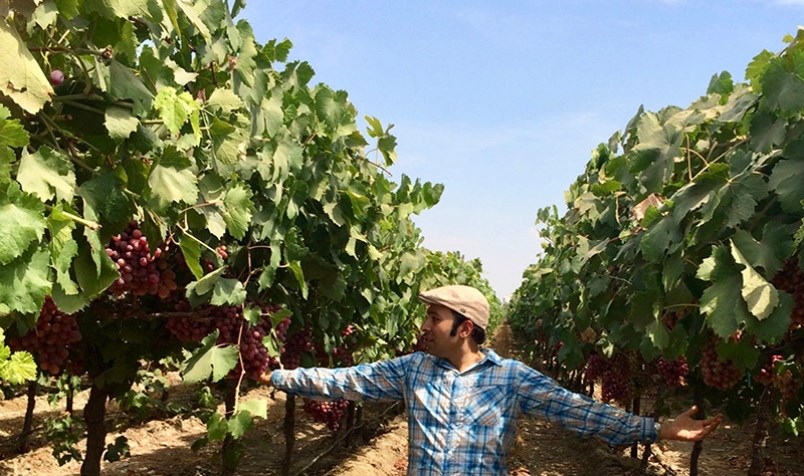A former Port Coquitlam MLA’s company focusing on healthy growth in agriculture can tout some healthy investment growth of its own this week.
Terramera Inc., led by Port Moody native Karn Manhas, revealed today (Jan. 28) it has landed an additional US$3.5 million for its Series B round, which had already secured US$45 million last year (approximately C$64 million).
Terramera’s flagship chemistry technology, Actigate, can be licensed to producers of both natural and synthetic pesticides to improve the efficiency, uptake and performance of the active ingredients in crop protection products.The technology would allow farmers to increase the performance of materials sprayed on agriculture while reducing the overall amount required. The company’s goal is to reduce synthetic chemicals used in agriculture globally by 80% by 2030.
“Terramera has the technology platform and expertise to transform commercial agriculture in systematic ways,” ArcTern managing partner Tom Rand said in a statement. “Their strategy to scale their technology to have the greatest impact will lead to healthier plants and soil, which will drive improved farm productivity and the potential to sequester carbon in well-managed soils. That’s really exciting and why we invested.”
Terramera is among the second wave of companies to land funding from the Vancouver-based Digital Technology Supercluster initiative. The initiative, which is open to organizations with a presence in Canada, sees non-profits, post-secondary institutions, and large and small enterprises partnering to develop commercial products. The consortia must be willing to put up investments of their own before being able to tap into supercluster funding backed by Ottawa.
Terramera’s supercluster endeavour sees it collaborating with eight organizations, including Compression AI and Canada's Michael Smith Genome Sciences Centre, on the Precision Agriculture to Improve Crop Health project.
The investment, Manhas told The Tri-City News last fall, “will be instrumental to fulfilling our mission of using technology to unlock the intelligence in nature, ensuring an Earth that thrives and provides for everyone.”
It’s a lofty ambition for a quest that first started taking shape in a lab that was more Breaking Bad than Silicon Valley that Manhas had cobbled together in the basement of the Port Coquitlam home where he was living at the time. In fact, he said, the assemblage of glass beakers, test tubes and pipes was so rudimentary, it raised the eyebrows of utility workers who had to access the basement when they were trying to repair a water main that had burst under the street out front.
While Manhas said he originally developed the formula to help natural pesticides work better, discussions with investors for initial financing in 2016 convinced him his product could also have a positive impact if it were also integrated into treatments with synthetic chemicals because less would have to be used.
Manhas said biotechnologies like Actigate have the potential to make organic agriculture more viable and profitable for farmers while reducing the environmental harm caused by synthetic pesticides.
“The value of that is a more efficient system,” he said, adding that efficiency might just be able to make the agriculture industry more regenerative rather than degenerative, ensuring the longterm viability of soils and the health of crops they support.
“We’re in a really interesting time, to be able to use data and technology to solve some of the biggest problems we have.”



